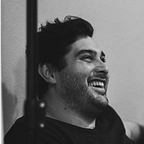Why I’m Done With Facebook
It’s my hope that, years from now, we will look back and talk about social media the same way our parents talk about smoking cigarettes.
Almost a year ago, as I was scrolling through my newsfeed one day, an unshakable question popped into my head: “Why do I even have a Facebook account?”
I rationalized that Facebook helps me stay in touch with friends; that it helps me feel close to people I care about who are physically far from me; that it’s a quick and innovative way of receiving useful information, from big breaking news to small updates from friends. But despite all those flimsy rationalizations, the honest answer is that I signed up for Facebook ten years ago because everyone else was signing up for Facebook ten years ago, and I’ve maintained an account since then because after signing up I never really thought twice about it. Basically, I have a Facebook account because I’ve had a Facebook account.
My relationship with Facebook has lasted roughly a decade — likely longer than any other consumer relationship I’ve had — and I have very little to show for it. The truth is that Facebook hasn’t improved my life in any meaningful way, and it’s likely had an adverse effect on my mental health. Despite Facebook’s focus on “friendship,” I’m not convinced that Facebook has actually made any of my friendships stronger or inspired new ones. If you and I have grown closer in recent years, I promise, Facebook didn’t have anything to do with it.
The more I considered Facebook’s role in my life, the less I found to celebrate and the more inescapable I found the conclusion that, ultimately, little good and a great deal of bad comes from long-term, widespread social media use. Chamath Palihapitiya — one of Facebook’s earliest hires — now refers to social media websites as “short-term dopamine-driven feedback loops that…are destroying how society works.” Psychologists have argued that Facebook deteriorates mental health, increases jealousy and anxiety and sews political division; it’s become clearer and clearer to me that the supposed pleasures and utilities of Facebook are largely a ruse. It’s addictive, but hardly essential or truly useful; a product that makes consumers feel we need it once we have it. But in reality, we don’t need it, and we never did. If Facebook ceased to exist, right now, our lives would likely only improve.
Facebook also undoubtedly makes us more susceptible to bias confirmation, exposes us to literal fake news and falsehoods and, by constantly presenting us with the most outrageous takes on any given news story, encourages us to stay outraged at each other over political issues. At its absolute worst, a Facebook newsfeed is a zoo of moral outrage and virtue signaling; a place where people talk past each other and brandish their political opinions and personal virtues as weapons. The political “conversations” on Facebook are rarely conversations, and the rank negativity, judgement, hostility and anger Facebook has empowered, more than anything, have convinced me that it’s a bad deal.
Of course, none of this is to say that there aren’t some small genuine benefits of using Facebook. Sure, it’s nice to see picture of relatives, RSVP to events and get little updates from old friends. However, for me, the longterm costs of logging on and scrolling daily, subjecting myself to whatever content Facebook’s algorithm deems fit for my eyes are far too high. Friendships flourished before Facebook, and friendships will flourish after Facebook. Information was disseminated and shared before Facebook, and it will be again after Facebook. In the meantime, the psychological and sociological costs are just too high for me to continue devoting time, energy and emotional resources to Facebook, so I’m out.
It’s my hope that, years from now, we will look back and talk about social media the same way our parents talk about smoking cigarettes: “It was cool, it was addictive, it was popular, and everyone was doing it. Of course, now we know better.”
